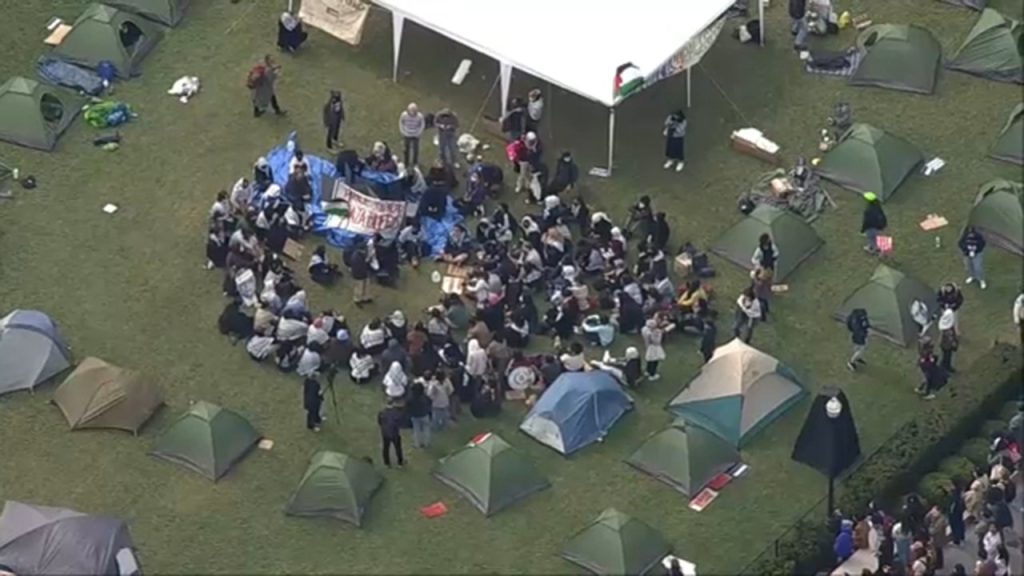Dozens of anti-Israel protesters occupied Columbia University’s south lawn, calling for the university to divest from companies with ties to Israel. University president Minouche Shafik was testifying before Congress on antisemitism on campus, alongside co-chairs of the board of trustees. The protesters camped out in tents on school grounds, defying university policies. Shafik and her colleagues were summoned to testify before the House Committee on Education and the Workforce regarding their efforts to combat campus antisemitism.
The presence of tents on the south lawn was considered a safety concern and a violation of university policies. A University spokesperson stated that the protesters needed to leave for their own safety and for the operation of the university. The protesters had pitched their tents earlier in the day, as the campus was locked down to ID holders only in anticipation of unrest related to Shafik’s testimony. Columbia had previously banned two anti-Israel student groups for violating university policies against harassment of other students.
Shafik gave a preview of her testimony in a Wall Street Journal op-ed, discussing the conflict between free speech rights and ensuring a supportive environment for all students. She acknowledged the challenge of reconciling the speech rights of pro-Palestinian protesters with the impact on Jewish students and their supporters, as some speech was unsettling and frightening. Columbia is the latest prominent school to face congressional scrutiny since Oct. 7, following MIT, Harvard, and the University of Pennsylvania. The presidents of Harvard and UPenn have resigned since testifying in December.
In March, students from various campuses testified about rising antisemitism at their universities, sharing vicious incidents at Harvard, Columbia, UC Berkeley, and other schools. The student protesters at Columbia referenced the school’s long history of organizing against apartheid and injustice as they called for divestment from companies with ties to Israel. The university’s response to the protests highlighted the delicate balance between free speech and creating a safe and supportive environment for all students, particularly in light of increased tensions following Shafik’s testimony before Congress. The issue of antisemitism on college campuses remains a significant concern for universities across the country, prompting congressional hearings and resignations of top administrators.


